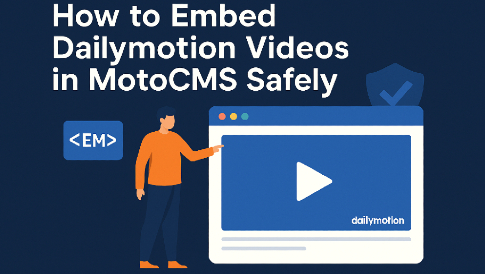Leveraging VPN Technologies to Boost Browsing Experience
Browsing the web doesn’t depend on logging in to the internet alone; several factors determine your browsing experience; your browser and the speed are critical to your overall browsing experience. For instance, resource-intensive plugins and website designs can lead to a slower browsing experience instead of having a remarkable and lasting online presence in Chrome.
Extensions often run in the background, even when inactive, leading to resource drain and making the browser sluggish; this is more evident if multiple extensions run simultaneously.
Higher CPU and memory usage arise from plugins and extensions consuming additional system resources; how they are customized can lead to performance issues like increased loading times and slower response rates. On the other hand, websites incorporating large images, complex scripts, or excessive multimedia content can take longer to load.
Also, poorly optimized code, like JavaScript or CSS files, can increase the time needed for the browser to render pages. Some websites affect user experience because of render-blocking resources (scripts and stylesheets that prevent the page from loading quickly) that critically delay the page rendition process.
So How Can Browsing Speed be Improved?
If your browsing is slow in Chrome, a virtual private network can help to resolve the issues you encounter. The fundamental principle behind a VPN is to create a secure, encrypted tunnel between your device and the internet. When you log in to the internet, a VPN routes your internet connection through a remote server, masking your IP address and providing privacy and security when browsing the web.

You can deploy VPNs for various reasons, including accessing geo-restricted content, ensuring data security on public Wi-Fi, and enhancing online privacy. But beyond these fundamental uses, you can improve browsing speeds with a VPN in certain situations. Here’s how they can help:
1. Bypassing Throttling
Internet service providers (ISPs) often employ bandwidth throttling to manage network traffic and ensure fair usage among users. VPN technologies, such as the split tunneling 2.0 feature, can help circumvent bandwidth throttling ensuing from streaming, downloading, or engaging in data-heavy activities and resulting in slower browsing speeds
By selectively encrypting your data and routing it through a different server while allowing non sensitive data to access the Internet directly, a VPN fine-tunes and customizes Internet traffic and impacts browsing speed. When the ISP can’t monitor your online activities, they cannot apply throttling based on your activities, potentially ensuring that your browsing isn’t slow in Chrome.
2. Avoiding Route Optimization Issues
Sometimes, your browsing can be slow in Chrome because of poor routing by the ISP. This issue can arise if you send your data through inefficient routes and can result in higher latency and lower speeds. Several VPN providers have multiple servers in diverse locations, optimizing connections and enabling better routing.
However, to avoid browsing slow in Chrome, connecting to a server closer to the desired destination reduces latency and improves speeds.
3. Enhancing Security and Reducing Malware Risks
Browsing slow in Chrome can result from malicious software or adware infecting your device. The layer of security a VPN adds by deploying the multi-hop, cascading, or double VPN feature to route your traffic through multiple servers, creating a complex web that throws hackers off guard, rendering unauthorized access almost impossible, and data encryption makes it more difficult for malware to penetrate your device.
Also, several VPN services come with built-in ad blockers and malware protection, which can reduce the number of unnecessary ads and pop-ups that can affect your browsing speed. You can enjoy a faster and uninterrupted browsing experience on Chrome through security risk mitigations and limiting distractions.
4. Unlocking Content with Reduced Latency
A VPN can be invaluable when accessing geo-restricted sites or content limited to specific regions. The geo-locational obfuscation feature of a VPN connects you to a server where the content is available, enabling you to access it without delays related to geographic restrictions.
Geo-locational obfuscation is particularly useful for streaming services that may be slower due to regional limitations. With this innovative VPN technology, you can enjoy seamless access to content without the frustrating slow in Chrome constraints.
5. Utilizing DNS leaks to improve browsing speed
When browsing, your VPN typically routes your online activities through the VPN’s own DNS servers, which are often faster than those provided by ISPs. With poorly optimized or overloaded DNS servers from your ISP, you may experience slow Chrome browsing.
By configuring your VPN to use its DNS servers, you enhance quicker response times and reduce downtimes for web pages to load, eliminating slow Chrome browsing issues.
Steps to choosing the right VPN for speed
VPN services aren’t equal and don’t offer the same level of speed and performance. When selecting a VPN to enhance your browsing experience on Chrome, you must do due diligence and check for the following factors:
1. Server Locations
A VPN that eliminates browsing slow in Chrome must offer multiple server locations, allowing you to connect to an optimal server based on your location and the content you wish to access. To lessen the latency you may experience, your VPN must connect to a server close to the content’s source.
2. Speed and Bandwidth Issues
You must subscribe to a VPN with reputable high-speed connections and unlimited bandwidth. Also, you should demand for speed tests. A reputable VPN service must offer speed tests and real-time performance metrics to help you adjudge your network’s competence.
3. Compatibility with Chrome Extensions
Can you vouchsafe for your VPN provider to offer dedicated extensions for Google Chrome? Google dedicated extensions can sometimes enhance performance since they manage connections more efficiently within the browser.
The VPN you subscribe to must have good compatibility with Chrome.
4. Ads and Malware-Blocking Features
Confirm that your VPN includes inbuilt ad blockers and malware protection to enhance your browsing experience by reducing unwanted content and improving load times. These features contribute immensely to a smoother and faster web experience, ensuring you don’t experience slow Chrome browsing sessions.
5. User Reviews and Reputation
Always consider user reviews and the overall reputation of the VPN service; product review sites abound to facilitate veritable insights into VPN services. Go for VPN services whose subscribers consistently give positive feedback regarding performance and reliability and are more likely to prioritize the speed improvement you seek.
Conclusion
A VPN enhances your browsing experience, especially with a slow-running Chrome browser. By bypassing throttling with split tunneling 2.0 technology, optimizing routing with a multi-hop or double VPN, enhancing security, and reducing malware risks with an AI-powered threat detection feature, a VPN enhances data security and potentially increases browsing speed. However, choosing the right VPN to implement best browsing practices and ensure optimal performance is crucial.
With the right tools and management, you can bid slow Chrome browsing goodbye and experience a smoother and faster online life.




Leave a Reply